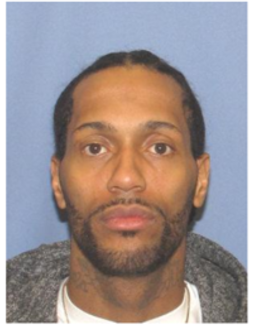
A Common Pleas judge denied an effort to scrap the death penalty from Golsby’s court case. Credit: Couretsy of Grove City Police Facebook page
A judge denied a request by Brain Golsby’s defense attorneys seeking to dismiss the death penalty due to racial discrimination black men might experience during trial.
Golsby, an African-American male and registered sex offender, is to be tried for the rape and murder of a white Ohio State student, Reagan Tokes. His attorneys submitted materials to support the death penalty dismissal Dec. 1, according to court documents. The request was denied Wednesday.
The material submitted included a statute from the Federal Death Penalty Act, called “Special Precaution to Ensure Against Discrimination.” For capital cases such as Golsby’s, it requires that the court instruct the jury not to consider race, color, religious beliefs, national origin or sex of the defendant or of the victim.
Under the rule, the jury would then have to turn in a signed certificate, ensuring they would not discriminate against the defendant or victim throughout the court process.
Also included were two studies on racial discrimination in court.
According to court documents, the prosecution claimed the author of one study — a professor at the University of North Carolina Chapel Hill — that focused on racial and geographic issues relating to Ohio’s death penalty system “misuses and misunderstands statistics,” which minimized the report’s findings.
The prosecution also provided statistics on Ohio crime. In the court documents, it read that from Jan. 1 to Nov. 7, of the 113 homicides, 77 percent of the known suspects are African-American. Since 2005, 64 percent of capital indictments in Franklin County involved African-Americans.
“The State appears to be arguing that because less of a percentage … there is no racial discrimination,” Golsby’s attorneys said, according to the court documents. The attorneys questioned whether the prosecutor in cases involving homicides could be responsible for the over-representation of African-American defendants involved in capital indictments.
“Further of those 113 homicides, how many offenders have been charged? What were the nature of the crimes? Were any self-defense?” the attorneys said.
The effort to dismiss the death penalty, which also called for a dismissal of GPS evidence and a request to delay the trial until the Ohio legislature passes a bill seeking to eliminate the death penalty entirely, were to no avail, with Mark Serrott, a Common Pleas Judge, rejecting the arguments made.
Golsby’s next hearing is scheduled for Jan. 26, 2018.


